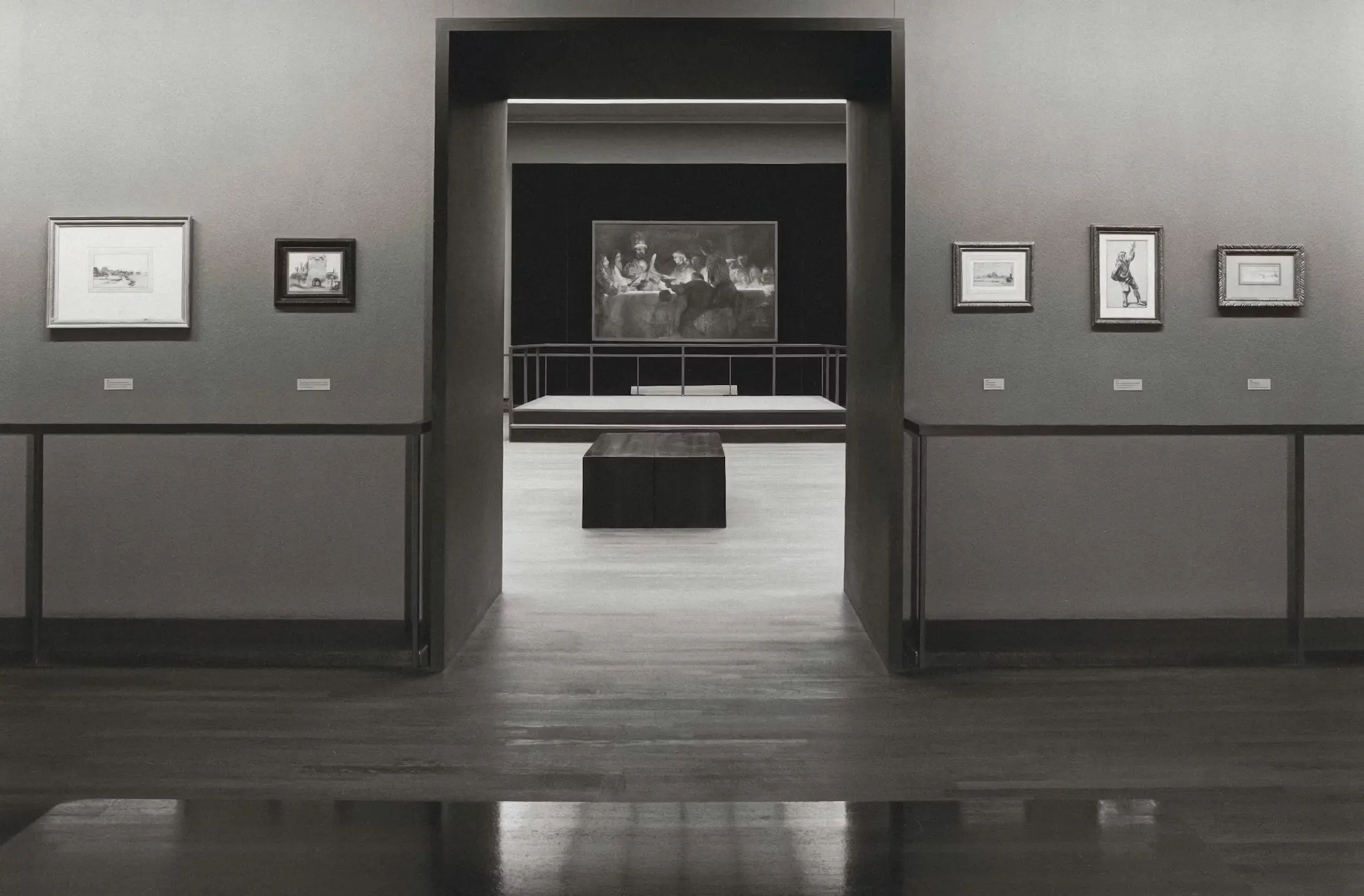Digital Spaces Redefine Retail and Culture
The pandemic era proved that customers will embrace immersive digital experiences when physical venues are hard to reach. Today, those expectations persist. A virtual reality store can let shoppers browse shelves from a sofa, while a 3D virtual art gallery enables collectors in Tokyo to attend an opening in Paris — no jet‑lag required. For interior designers of digital spaces, product managers, and tech‑savvy retailers, understanding how these new 3D environments work is critical. This guide explains the technologies behind next‑generation virtual stores and galleries, outlines business benefits, and suggests a practical roadmap for deployment.
What Makes a Virtual Store Truly Interactive?
A modern virtual store platform does far more than sweep a 360‑camera through a showroom. It renders fully modeled aisles and SKUs that visitors can walk past, zoom into, and tap for live data. Under the hood, WebGL or a real‑time engine — Unity or Unreal — is streamed through the browser, turning a cloud server into your customer’s GPU. When brands launch an interactive virtual store they typically combine three building blocks:
- Optimized 3D Assets – Lightweight geometry, baked textures, and LOD (level‑of‑detail) switching keep frame rates high on mobile.
- E‑commerce Connectors – APIs pull real stock, price, and promotion data into the 3D experience, so clicking a product card adds it to the same cart a 2D site uses.
- Analytics Hooks – Heat maps and dwell‑time metrics replace foot‑traffic counters, giving retailers insight into which virtual aisles convert best.
Whether you embed the scene inside an existing website or launch a standalone 3D virtual store website, the same principle applies: frictionless navigation plus real‑time data equals sales.
Inside an Immersive Virtual Art Gallery
A successful virtual art gallery has one mission — replicate the contemplative pace of a physical exhibition while offering digital perks. Visitors expect high‑resolution textures that reveal brush strokes, smooth camera paths, and intuitive UI overlays for provenance details. Curators often commission an immersive virtual art gallery for three scenarios:
- Art Fairs & Drops – Limited‑edition NFTs or prints can launch inside a cloud‑hosted space accessible for 72 hours, creating urgency.
- Permanent Collections – Museums publish a year‑round vr art gallery allowing global educators to run tours without travel grants.
- Hybrid Events – A physical opening streams a synchronized 360 art gallery feed, letting remote guests interact with on‑site attendees via avatars.
Key differentiators include HDRI lighting for realistic reflections, spatial audio for ambient chatter, and multi‑user sessions so groups can discuss a canvas together during an art gallery virtual tour.
Core Tech Stack and Production Workflow
Creating either a 3D virtual store or gallery follows a repeatable pipeline:
| Phase | Tools & Tips |
| Concept & UX Wireframes | Storyboards define traffic flow, hero zones, and call‑to‑action hotspots. |
| 3D Asset Production | Photogrammetry or CAD‑to‑mesh conversion builds product or artwork models. Studios such as 100CGI Studio retopologize and texture‑bake assets for WebGL efficiency. |
| Engine Build | Unreal offers superior dynamic lighting; Unity excels at WebGL exports. For browser‑first projects, Babylon.js keeps downloads small. |
| Cloud Deployment | A CDN serves textures, while GPU instances stream heavier scenes to low‑power devices. |
| QA & Accessibility | Keyboard navigation alternatives, captioned audio guides, and color‑contrast checks widen audience reach. |
Using experienced vendors during asset creation is vital; poor polygon counts or mismatched PBR maps can torpedo load times and retention.
Business Benefits and Actionable KPIs
Implementing a virtual online store or gallery is not just a branding exercise; it drives measurable value:
- Global Reach – 24/7 access without visas or time zones.
- Engagement – Average dwell time inside a virtual store tour exceeds two minutes — double most 2D product pages.
- Conversion Uplift – Interactive hotspots with 3D product demos lift add‑to‑cart rates by up to 15 % according to Shopify’s AR reports.
- Data Richness – Heat‑map tracking of gaze direction in a VR art gallery pinpoints which artworks captivate visitors longest, informing curators’ future layouts.
Brief Case Snapshots
Luxury Fashion Pop‑Up
A Paris couture house launched a time‑limited 3D virtual store before Fashion Week. Real‑time fabric simulations and clickable runway videos resulted in a 12 % revenue bump versus the previous season’s 2D pop‑up.
National Museum Retrospective
When pandemic travel bans hit, a Scandinavian museum published its Picasso retrospective as a virtual art gallery software experience, drawing 600 000 visitors — quadruple the physical footfall target. Merchandise sold via embedded links recovered 40 % of lost ticket income.
Step‑by‑Step Implementation Roadmap
- Set Goals & KPIs – Are you chasing brand buzz, direct sales, or educational reach?
- Scope the Scene – Define square footage, product count, and user concurrency forecast.
- Create Virtual Store Assets – Scan or model hero SKUs first; refine lighting rigs early.
- Integrate Commerce & CRM – Link to existing product APIs; tag events for analytics.
- Pilot & Iterate – Release a private beta; gather heat‑map data; optimize bottlenecks.
- Launch & Market – Sync email campaigns with a countdown timer to drive urgency.
- Post‑Launch Enhancement – Add seasonal themes, interactive quizzes, or live‑streamed artist talks to extend lifecycle.
Future Trends: AI, Haptics, and the Metaverse
Generative AI now auto‑stages shelves and suggests artwork curation based on buyer personas. Haptic gloves will soon let visitors “feel” fabric folds inside a virtual reality store. Browser‑based volumetric video streams promise director‑level storytelling inside a 3D virtual store software suite — imagine a live stylist guiding you through racks in real time. And as metaverse standards mature, a single avatar could hop from a fashion showroom to a VR art gallery without changing apps, bringing loyalty tokens and purchase histories along.
Partner for High‑Impact Results
Immersive commerce and culture are no longer speculative — they’re revenue‑producing channels with measurable ROI. Whether you aim to create a virtual store that drives sales or host a headline‑grabbing virtual art gallery tour, technical execution makes or breaks the experience. Advanced lighting, optimized meshes, and cross‑device performance demand professional craft. 100CGI Studio delivers photoreal asset creation, real‑time engine builds, and turnkey deployment that keep load times low and conversion rates high.
Digital visitors are ready; the question is, will they discover your brand in a flat web page — or step into a compelling 3D world that you control? The blueprint is here. The next move is yours.








Leave a Reply